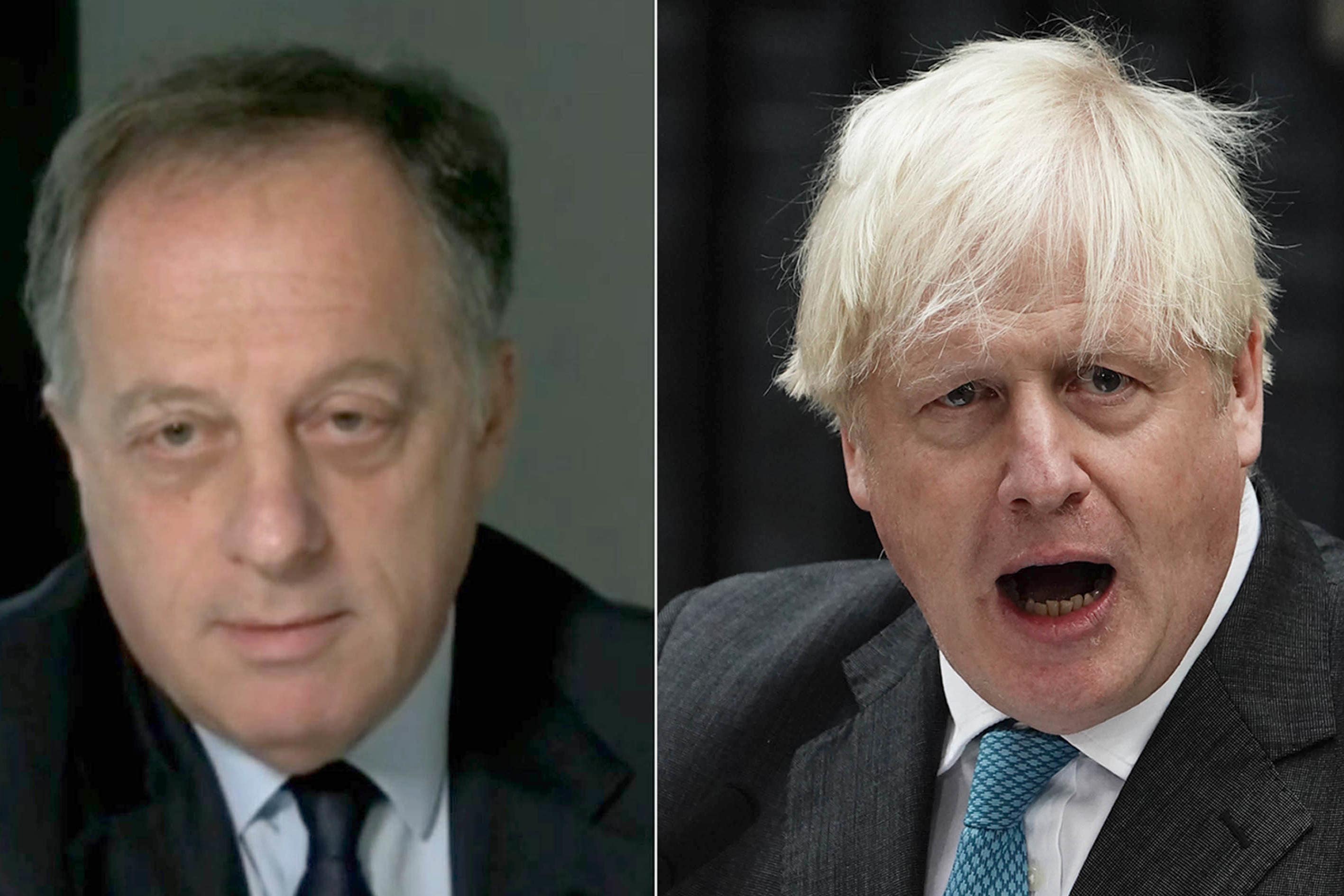The only solution to the Richard Sharp case is to remove him from his position
Editorial: The entire case should be enough to make it clear that appointing such a position by political patronage is in no one’s interest bar the prime minister’s, and is therefore not fit for purpose

It is no surprise that MPs have concluded that the chair of the BBC, Richard Sharp, has “undermined trust” in that organisation through his involvement in the arrangement of an £800,000 loan for Boris Johnson.
The MPs on the culture, media and sport select committee have also concluded that Mr Sharp made a “serious error of judgement” when he did not disclose full details of this matter to them when they were considering his application for the position of BBC chair two years ago.
(Committees of MPs can, on occasion, be somewhat partisan, but this particular committee originally approved of Mr Sharp’s appointment and has now said that Mr Sharp withheld this important information from them at the time.)
It is hardly surprising that political appointments undermine trust in organisations that are supposed to be politically neutral. It is a bizarre system that should make the chairmanship of the BBC a position ultimately appointed by the prime minister; and for that person to then either be, or at least be perceived to be, less than politically neutral.
Previous Labour governments have also appointed political allies to important BBC positions. Roger Mosey, the former head of BBC Television News, is one of many senior ex-BBC figures to question whether political patronage is the best means of appointing such senior figures to an organisation that goes to extraordinary lengths to maintain its impartiality, and which is endlessly attacked by all sides for having failed to do so.
But this, by any measure, is an especially egregious case. Mr Sharp has insisted he was chosen “on merit”; while this may very well be true, he was, by definition, chosen on merit only from within a range of candidates of which Boris Johnson approved.
Mr Sharp has since been involved in the appointment of very senior editorial figures. It could hardly be less helpful for the general morale of journalists – who prize the perception of their impartiality more highly than almost anything else – to know that the appointment of their most senior bosses have been approved of by a man who, by his own admission, had a private dinner with a distant Johnson family member, to discuss how a private loan of £800,000 might be offered to the then prime minister.
It is also – at least in the committee’s view – clear that Mr Sharp was deliberately less than entirely forthcoming about the incident, which is highly damaging.
Labour’s Lisa Nandy has said that Mr Sharp’s position is becoming “increasingly untenable”. She would say that, of course, but there are other measures through which to consider the matter. It is not that long ago that BBC director general Tim Davie (a man who once stood for election for the Conservative Party as a local councillor) caused considerable consternation by seeking to clamp down on what he called “perceived bias” among BBC journalists. Not merely, in other words, actual bias, but merely attending events that could be construed as showing bias. Among the examples given was a pro-LGBT+ march.
It hardly needs to be stated that having dinner with a Conservative prime minister’s long lost cousin in order to discuss how he might be assisted financially, and then him appointing you to one of the BBC’s biggest jobs within a matter of weeks, would score rather highly on whatever it is you might use to measure “perceived bias”.
It is a bias that will only be perceived to be corrected if Mr Sharp is removed from his position. But even if he is not, the entire case should be enough to make it very clear indeed that appointing such a position by political patronage is in no one’s interest bar the prime minister’s, and is therefore not fit for purpose.



Join our commenting forum
Join thought-provoking conversations, follow other Independent readers and see their replies
Comments